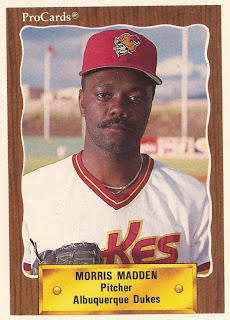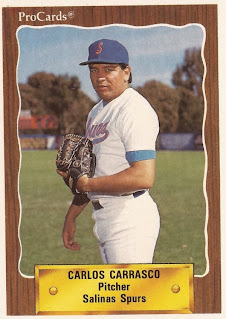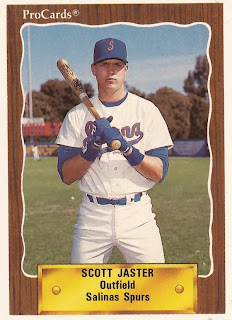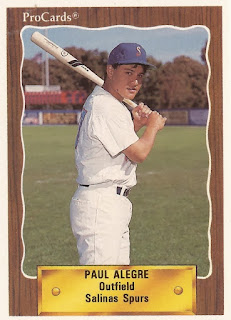His power came in the form of 20 home runs. His average came in at .347. Kaub was clear to The Times on which one he preferred.
"I'm not here to hit singles," Kaub told The Times. "I'm looking for a pitch up, a pitch I can drive."
Kaub soon turned pro, but he was unable to fully take that power and average with him. Playing in the Expos system, Kaub could only muster a total of 26 home runs and a .222 average over just three professional seasons, the extent of his professional career.
Kaub's career began that year in 1988, taken by the Expos in the 28th round of the draft, out of Fullerton. Kaub went to Fullerton out of Golden West College.
At Golden West, Kaub helped his team to an April 1985 win with a three-run home run. In an April 1986 game, Kaub went 5 for 6 for Golden West, hitting two home runs.
Moving on to Fullerton, Kaub continued hitting home runs. He hit a three-run shot in an April 1988 game. That home run was also a walk-off, hit with one out in the bottom of the ninth.
"This was one of the biggest hits of my career," Kaub told The Times after that game. "I was guessing a slider and just looking to hit the ball hard."
In late-May, Kaub had another two-home run effort, in the NCAA's South Regional.
With the Expos, Kaub started at short-season Jamestown. Over 61 games, Kaub hit .273, with eight home runs. In early July, Kaub was hitting .289. He was optimistic about his future, according to The Times.
"Maybe they (the Expos) have been surprised," Kaub told The Times. "I've heard I've gotten good reports in Montreal. I still have to improve. I'm only playing single A. It's going to take a couple of years to make the majors."
Kaub, though, played just two more seasons. He played at single-A Rockford in 1989, but hit just .183, but hit 11 home runs. He returned to Rockford for 1990, but couldn't hit much better. In 42 games, he hit just .200, ending his career.
- Los Angeles Times, April 2, 1988: Kaub's Home Run Completes Fullerton's Rally
- Los Angeles Times, June 9, 1988: Kaub Filling His Role as the Titans' Big Man
- Los Angeles Times, July 7, 1988: Former Titan Caffrey Feeling Better in Double A
Players/Coaches Featured:1,397
Made the Majors: 729 - 52.2%
Never Made Majors: 668-47.8%-X
5+ Seasons in the Majors: 319
10+ Seasons in the Minors: 187





















